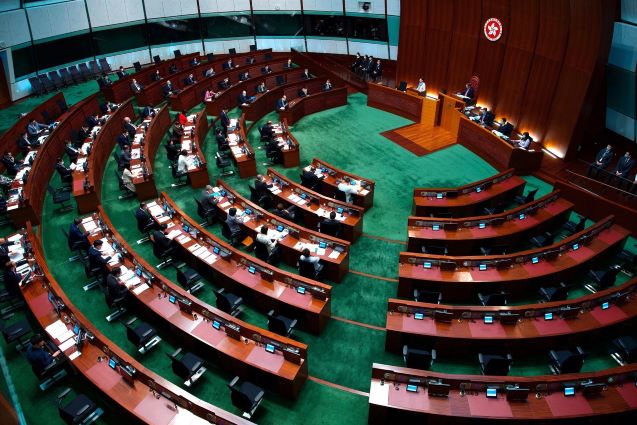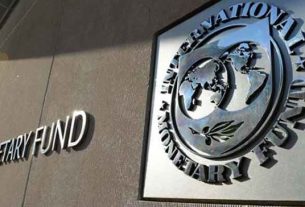Hong Kong’s legislature approved its own national security law Tuesday further bolstering the government’s power to silence dissent. The legislation goes further than a similar one imposed on the port city by China four years ago in the wake of the 2019 pro-democracy protests.
The new sanctions were approved Tuesday by a vote of 90-0 by the pro-Beijing chamber. The passage comes weeks after Chief Executive John Lee announced the legislature would create the laws as required by Article 23 of Hong Kong’s Basic Law, the mini-constitution that took effect when Britain handed the city back to China in 1997.
Lee announced the new law will take effect on March 23, calling its passage “a historic moment for Hong Kong.”
The new law will cover treason, insurrection, espionage, theft of state secrets, foreign influence and interference, and sabotage, including the use of computers and electronic systems to conduct acts that endanger national security. Anyone convicted under the new law could face anywhere from several years in jail to life imprisonment.
Beijing imposed its own national security law on Hong Kong in 2020 in response to massive pro-democracy demonstrations a year earlier that left the city in turmoil. The law punished anyone in Hong Kong believed to be carrying out terrorism, separatism, subversion of state power or collusion with foreign forces.
Since the law took effect, hundreds of pro-democracy advocates have been arrested, tried and jailed, and the city’s once-vibrant civil society has been stifled.
A previous attempt by Hong Kong to pass a national security law in 2003 was abandoned after a massive street protest that drew 500,000 citizens.
China’s national legislature has since retooled Hong Kong’s electoral process to ensure only pro-Beijing loyalists can serve in the city’s legislature.__VOA News





